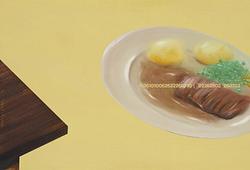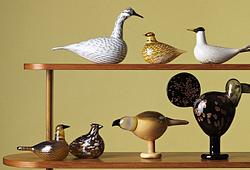Lena Cronqvist
"Nschyego"
Signed Lena Cronqvist and dated -64. Canvas 116 x 100 cm.
Literature
Mårten Castenfors, "Lena Cronqvist och det absolut nödvändiga", Lena Cronqvist, SAKs årsbok 2003, reproduced on page 10.
Ingela Lind, "Lena Cronqvist -Målningar", Galleri Lars Bohman, 1994, reproduced full-page page 21.
More information
Lena Cronqvist debuterade 1965 på Galerie Pierre i Stockholm. Bland de verk som ingick i utställningen var bland annat konstnärens målningar av apor. Skildringen av apans mänskliga drag och instängdhet kan måhända vara en försmak av det som senare kommit att bli något av konstnärens signum, att skildra människans villkor, både hennes utsatthet och styrka.
Designer
Lena Cronqvist is born and raised in Karlstad. Her interest for the arts came early in her life, and she spent the first year of her studies in England, near Bristol’s Art School. Upon her arrival back in Sweden, Cronqvist began a short-lived education at Konstfack, leaving to study painting at the Royal Academy of Fine Arts. When examining Lena Cronqvist's painting, it delves into "painting" in its more traditional sense. She is indeed a painter in the grand modern tradition, frequently turning to Edvard Munch and Francis Bacon’s art as inspirational sources. Yet she also had numerous art historical references and a deep love for the craft. Cronqvist excelled as a colourist, finding harmony in the most unusual colour combinations – few have managed to paint warmth and cold successfully at the same time. Her subject matter is often perceived as challenging and overly private by many. She often models herself for her art, posing in mundane situations imbued with a sharp psychological character. Her “Modonna-pictures” from the 1970s are a good example of this. She turns our gaze away from the conventional, notably in her portrayal and depiction of girls, which is fascinating. Cronqvist depicts these girls as ugly, simple, and altogether uncomfortable – a great contrast to how woman were normally portrayed in art. In more recent years, Lena Cronqvist has studied the effect of aging, using herself as a study. Moreover, Cronqvist is a very successful sculptor, and several of her works in bronze have been sold great sums in the auction world. She is also gifted in graphic productions, of which “Strindbergsmappen” is the most well-known. Among her most renowned works is "The Betrothal," a paraphrase of Jan van Eyck's symbol-laden painting "The Arnolfini Portrait." In Cronqvist's reinterpretation, artist and husband Göran Tunström are the main characters, with equally weighty symbolism but carrying entirely different meanings. Where van Eyck's painting features a loyal dog, Cronqvist replaces it with a cat—a symbol of independence.
Read more
























